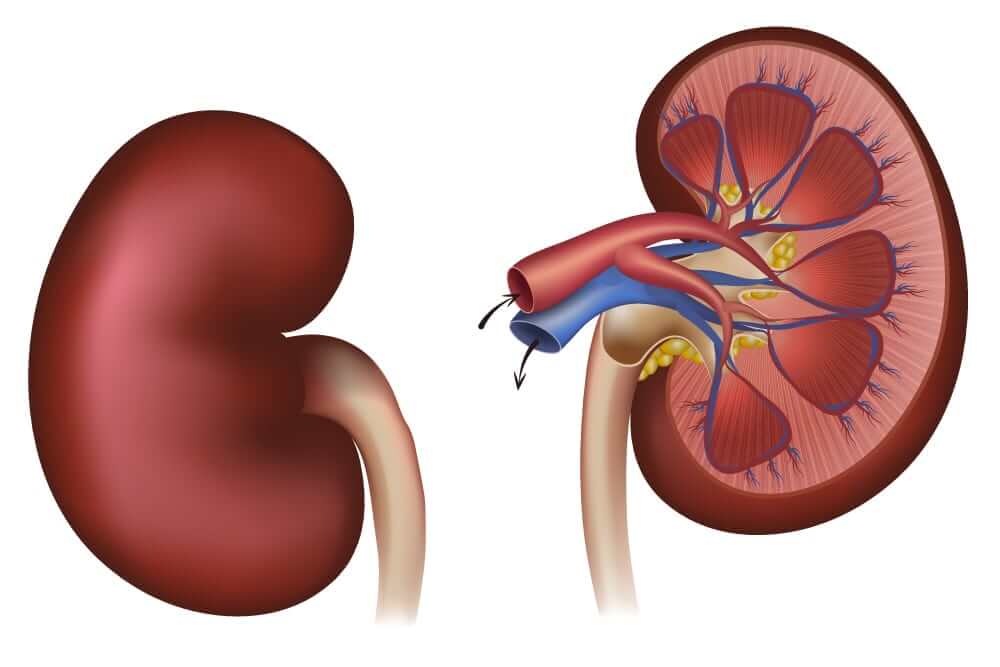People with diabetes are concerned about kidney complications and how to avoid them. Fluctuating blood sugar levels and high blood pressure may cause kidney problems. Losing weight, lowering sodium intake and controlling your A1C are three major ways to help protect your kidneys.
- Kidneys have millions of blood vessels that work as filters to get rid of waste from your blood. The American Diabetes Association indicates high blood sugar may overwork your kidneys by making them filter too much blood. Regular use of blood sugar monitors helps you maintain proper blood sugar levels.
- People with diabetes are also prone to developing high blood pressure because the blood vessels of the kidneys can thicken and narrow. The kidneys filter less blood causing waste to build. Proper diet, no smoking and regular cardiovascular exercise help lower high blood pressure.
- Weight gain can increase blood sugar levels and cause high blood pressure. Additional weight overworks your body systems. Losing weight can help people with diabetes avoid fluctuating blood sugar levels, high blood pressure and kidney damage. Using portion control plates make weight management easier by clearly defining proper portion sizes.
- A low sodium diet minimizes the chance of developing kidney problems. Eating excess sodium makes it hard for your kidneys to get rid of the sodium and fluid from your body. They build in your bloodstream and tissues, which can lead to high blood pressure and renal disease. The recommended daily intake of sodium for people with diabetes is about 1500 milligrams which is less than one teaspoon of salt. Frozen and packaged foods as well as canned soups and gravies often contain high sodium levels. Never add salt to flavor your food.
- Consult with your diabetes care team or dietitian about the right foods to help lose weight and lower sodium intake. Choosing diabetic foods help reduce the sugar and salt you consume. Fresh herbs and spices enhance the flavor of food.
- Controlling your A1C is also important to avoid kidney problems. An A1C test measures your average blood glucose control for the past three months. Have your A1C checked about every three months or as the physician recommends. Continue to regularly monitor blood glucose levels at home.
- Regular cardiovascular exercise helps you maintain a healthy weight and improve circulation to reduce kidney problems. Try a daily walk using Omron pedometers to gauge your distance. Walk a little further everyday to get a good workout.
Keep track of the three major ways to protect your kidneys against failure including a low sodium diet, weight management and controlling your A1C. Monitor your blood pressure and blood sugar regularly. Develop healthy habits such as proper portion control and regular exercise to help ward off kidney disease. Do not smoke cigarettes.













Leave A Comment